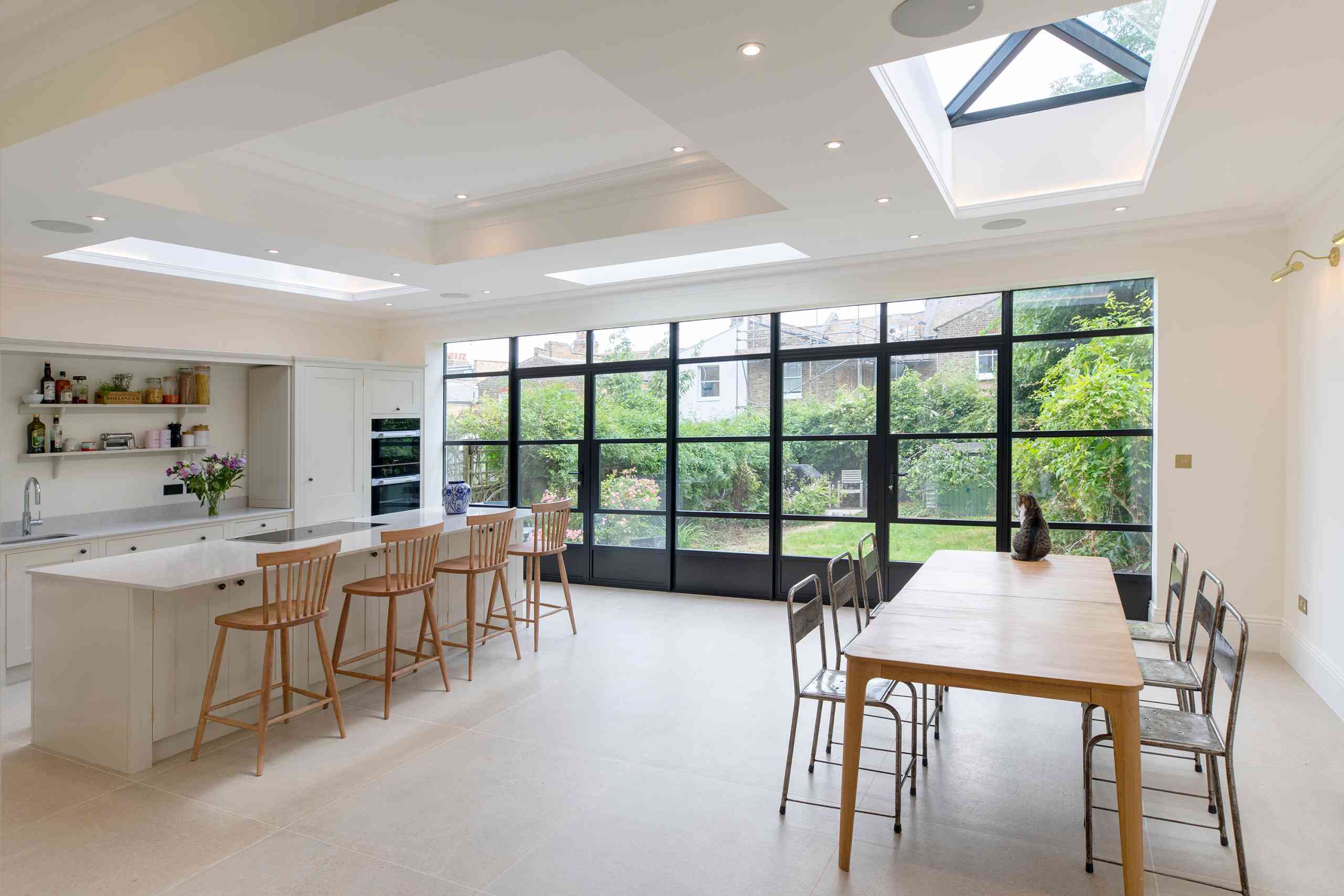Rising construction costs in the UK are now common knowledge. In the last two years, material shortages and supply chain issues due to the pandemic caused sharp rises in material costs. While this problem has subsided, other factors such as inflation, Brexit and the war in Ukraine have pushed prices up even further. Not only are materials more expensive, labour costs have also increased.
However, demand for extensions remains high. Most homeowners still know the value in extending and renovating, despite the higher costs. The most important thing is to have realistic expectations from the outset, which will be critical to the success of your project. Many cost articles online have become quickly redundant, so we decided to ask the residential architects on Design for Me for their real-life experience of cost increases in 2022.
Our survey of residential architects in the UK (2022) found that home extension project costs have increased by an average of 30% in the last year.
Image above by Andreas, architect in North London. See his full profile on Design for Me and shortlist him for your home project here.
Which items in particular have increased in cost?
This is interesting to know, to see if you can avoid certain materials or products to reduce project costs. However, most architects we surveyed noted that prices had increased across the board. Others noted price increases in concrete, timber, glazing, insulation, roof tiles, plastering and labour – all of which are commonplace or essential for home extension projects and not easily avoided.
Extensions – shortages and delays
As part of our survey, we asked the architects – ‘Have you experienced any issues relating to availability and lead times, and impact on project timescales?’
It’s important to be aware of this as you plan your project timescales. The architects reported that they had seen delays for the following:
- steelwork
- aluminium doors
- glazing
- all timber products
- contractors generally.
One architect commented, ‘Glass is still an issue, most builders are now ordering glazing at the start of a project and making openings to suit, rather than the other way round – this can result in some issues!‘
However, some architects noted that material supply issues were improving post-pandemic. One architect in Salisbury said supply issues were ‘on and off but getting back to normal’ and another London architect commented they had ‘[not noticed delays] particularly since covid’.
A couple of architects also reported that the main delays they had experienced were in relation to planning permission or building control, possibly due to a recent increase in the number of projects and enquiries.
A few architects commented on long waiting lists for contractors. One architect in Brighton said that most contractors are booked up 6-9 months in advance and another in Manchester reported waiting lists over a year long, for most builders.
Advice from the professionals
We asked the architects what advice they would give to homeowners starting out on a home extension or renovation project:
– Be honest about your budget from the start and be flexible with ideal timescales. The market is quite volatile and the best way is to navigate it with patience. Be sensible about the level of renovation and extension required – make best use of the available space without jumping straight into an extension.
– Be realistic in your budget and cost expectations from the start. Make sure you get a specification or schedule of works for a builder to price as well.
– Builders may want to exclude fixed costs for materials from their tenders.
– [if any fixed cost items are excluded from your quotes] be ready to pay for any unexpected increases.
– Itemise cost plans.
– Allow additional time and an increased contingency.
– Allow 20% always over planned budget.
– Keep 20% extra on top of final quotation and allow enough time to get a builder.
– Place orders well in advance and have a good contingency.
– [Prioritise] quality over quantity.
– If you’re relying on finance it’s important to arrange this ahead of time to know what funds will be available.
– Consider the design and ask builders regarding cost saving options before submitting for planning permission.
How much does a house extension cost?
Based on the recent increases, we’ve updated some of our existing cost articles, which can be found by using the following links:
House extension costs: https://designfor-me.com/cost-planning/how-much-does-a-house-extension-cost/
Two storey extension costs: https://designfor-me.com/project-types/extensions/guide-to-costs-and-planning-permission-for-a-two-storey-extension/
Renovation and extension costs in the SE: https://designfor-me.com/cost-planning/renovation-and-extension-cost-per-square-metre/
Loft conversions: https://designfor-me.com/cost-planning/how-much-does-a-loft-conversion-cost-2022/
Finding the best architect for your home project…
Design for Me is a free platform to help you quickly find the right design professional for your home project.
Once you register your project, we’ll match it with 100s of top architects or architectural designers in your area and beyond. You can see who may be available and eager to work on your project straight away.
- Quickly see who’s interested in your job
- Create a shortlist
- Invite up to three for a no-obligation consultation
Emily Design for Me

